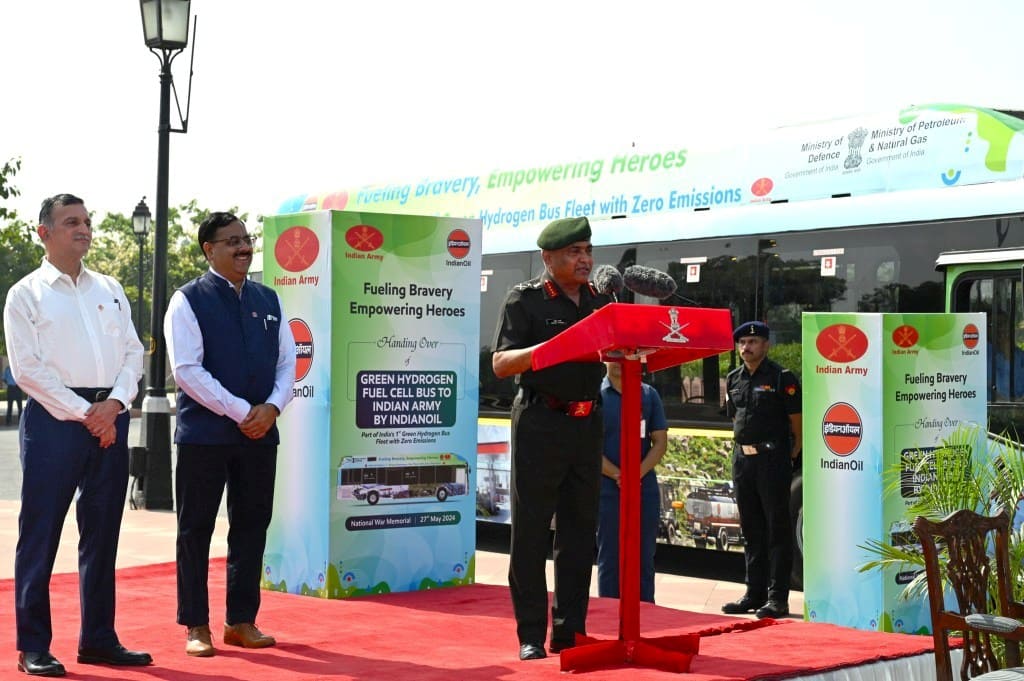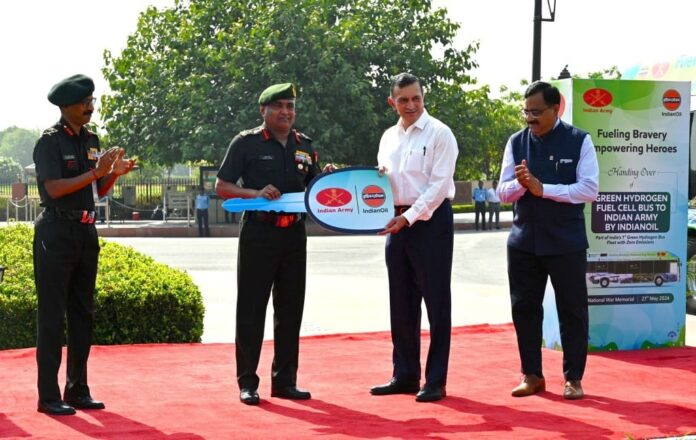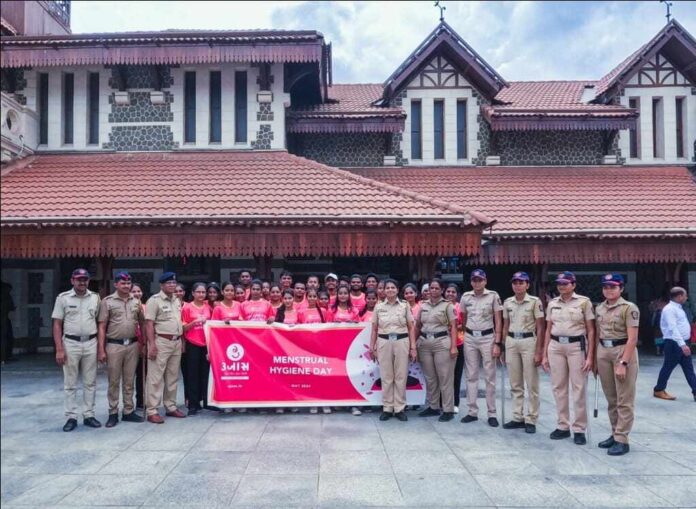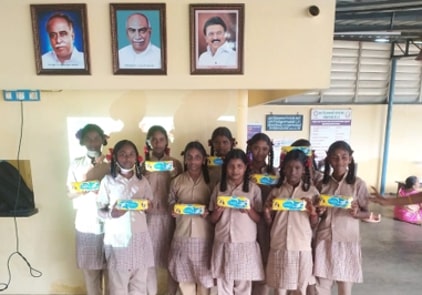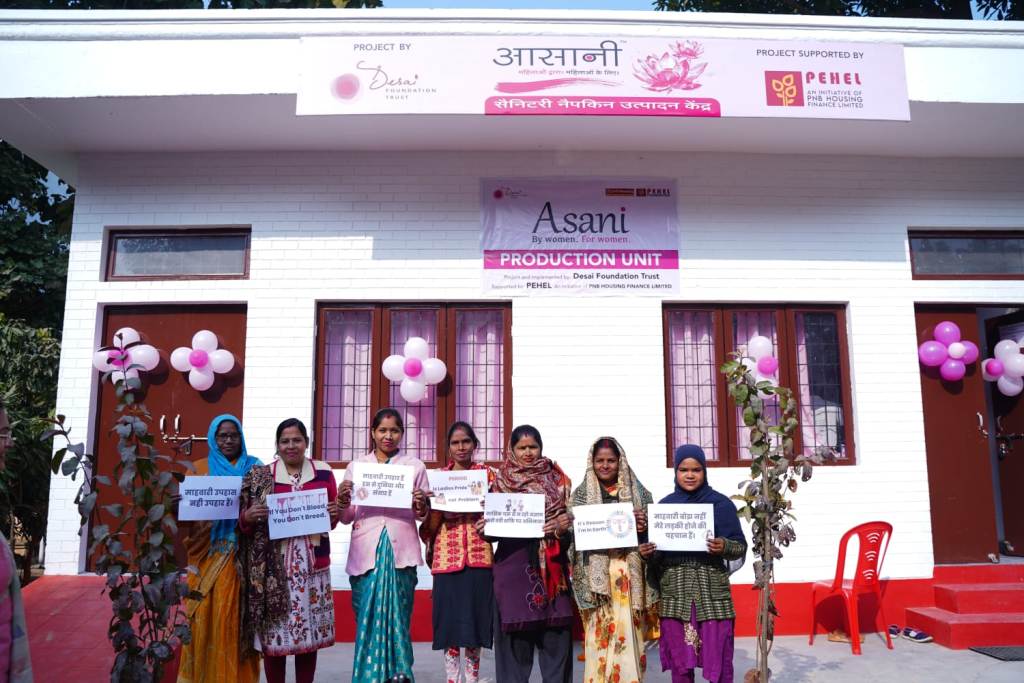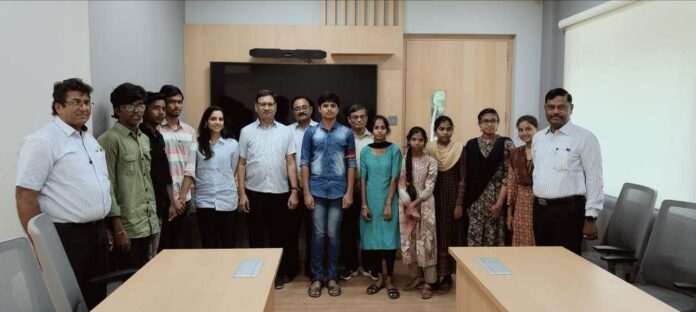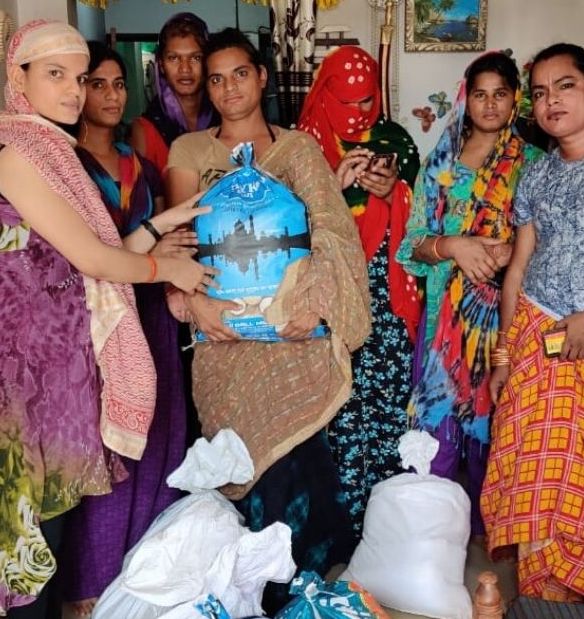In a sustainable step towards cleaner and greener transport solutions, the Indian Army has entered into a partnership with Indian Oil Corporation Limited (IOCL) for demonstration trials of Hydrogen Fuel Cell Bus technology.
“Earlier this week, a Memorandum of Understanding (MoU) was signed between the Indian Army and the IOCL in presence of General Manoj Pande, Chief of the Army Staff (COAS) and Mr Shrikant Madhav Vaidya, Chairman of Indian Oil. The MoU aims at commitment to fostering innovation and advancing sustainable transport solutions for the future,” as per a statement issued by the Ministry of Defence.
During the event, Indian Oil presented a Hydrogen Fuel Cell Bus to the Indian Army. The Hydrogen Fuel Cell Bus has a seating capacity of 37 passengers. It promises an impressive mileage of 250-300 km on a full 30 kg onboard tank of Hydrogen fuel.
